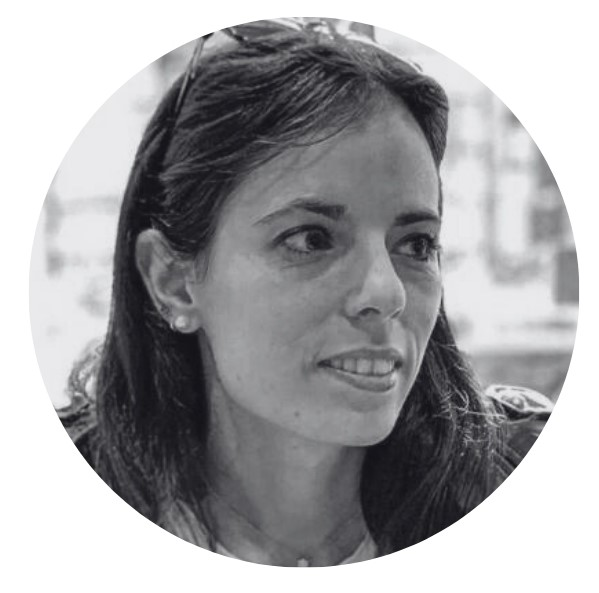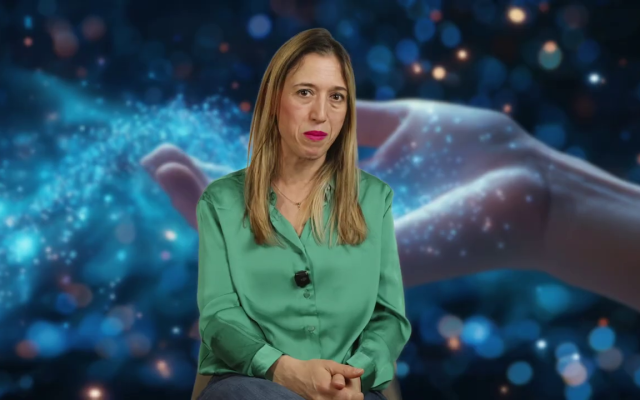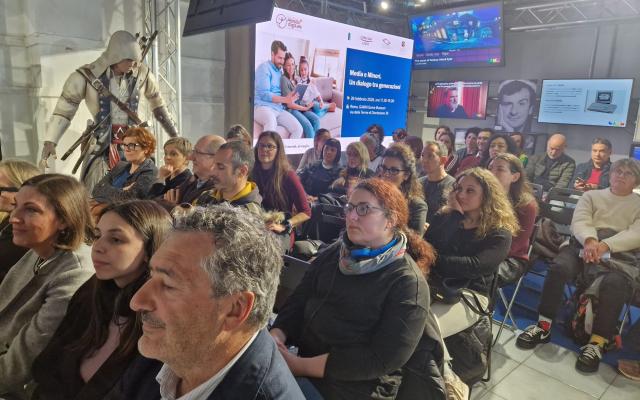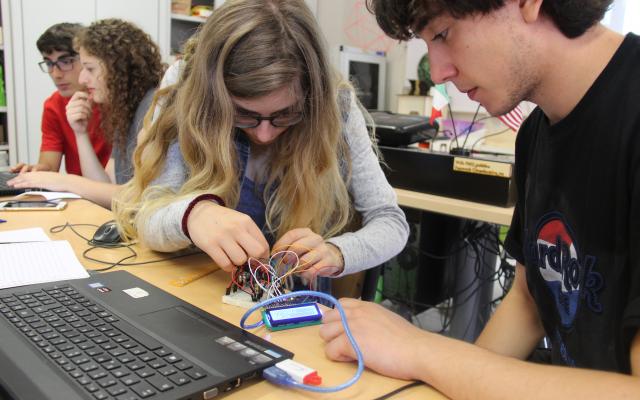Three years of Mind the Gap, combining creativity, digital skills and active citizenship
When something good comes to an end, you are always left with a strange mixture of emotions: there is satisfaction for the journey taken, pride in the results achieved, but also a touch of melancholy because an important chapter is closing. These are the projects and experiences that leave their mark, that build bonds, that spark reflection, that open new horizons. And perhaps that is the beauty of it all: knowing that even when the project ends, what has been learned, built and shared remains.
This morning, at the Oglio Library in Municipio 4 in Milan, we shared a special moment with around 70 secondary school students, protagonists of the Mind the Gap project, which began three years ago and will officially close next November. The delegations from the five schools present, three comprehensive schools (Madre Teresa di Calcutta, Via De Andreis and Marcello Candia) and two secondary schools (Oriani Mazzini and Galdus), represented the numerous classes involved in these three years of the project, enthusiastically recounting and showing the results of their work.
The event was made even more significant by the unexpected presence of the president of Municipality 4, Stefano Bianco, who listened attentively to the projects and congratulated the students. This symbolic gesture reinforced the sense of belonging to the local area and the importance of youth leadership.
The secondary school students took part in two years of training, becoming innovators capable of proposing real solutions to everyday problems: from road safety to solidarity initiatives, digital applications to improve life in the city and combat urgent social issues such as gender violence and youth unemployment. The focus of the courses run by lower secondary schools, on the other hand, was a reflection on the Sustainable Development Goals, which inspired the students to create coding and video-making projects and prototypes addressing issues such as gender equality, urban regeneration and environmental protection. Among the ideas presented this morning, for example, were videos and animations created with Scratch software to improve the school, create spaces dedicated to lending school materials and implement initiatives for more effective waste sorting.
The most significant moment was undoubtedly the exchange of opinions and curiosity between students from different schools: seeing the younger ones listening with interest to the older ones, asking questions, being inspired and, at the same time, observing the older ones recognising in the younger ones the same passion and desire to change things was very moving. A spontaneous, sincere intergenerational exchange took place, giving full meaning to the project: building bridges between different worlds, between different ages and backgrounds, to generate new visions of the future. This, then, is the meaning of “Mind the Gap”, which confirms itself as a laboratory of social innovation and inclusion, capable of generating trust, motivation and a sense of community among young people in a context with a high risk of early school leaving and educational poverty.
At the end of these three years of the project, sincere thanks go to the head teachers Emanuela Giorgetti (Madre Teresa di Calcutta), Francesca Scarpino (L. De Andreis), Mariafinizia Felaco (M. Candia); to the teachers at De Andreis, in particular Chiara Donisi and Tiziana Gianola; to the teachers at Madre Teresa. di Calcutta, in particular Maura Curreli and Antonella Giammarresi, and the teachers at IC M. Candia, in particular Silvia Conte. Thanks also to Prof. Cristian Infante for his trust, and to Prof. Ilaria Ariano of IIS Oriani-Mazzini. A heartfelt thank you to Prof. Jelena Ciarloni of the Galdus School for her availability and for how she has supported us and the students since our first meeting.
Thanks also to the trainers who accompanied the students on this journey, in particular, Elia Mengozzi, Leonardo Acquaroli, Chiara Grifò, Monica Cauduro, Elisa Bova, Tullia Romanelli (for the sessions with the Personal Ecosystem Canvas for the upper secondary school classes) and the trainers from Makers Hub.
And a special thank you goes above all to the young people for putting themselves out there with enthusiasm, for believing in the project and for reminding us how important it is to invest in initiatives like this. Their spontaneous, sincere and heartfelt “thank you” today is, without a doubt, the most precious reward.

By Elisabetta Gramatica, project officer




